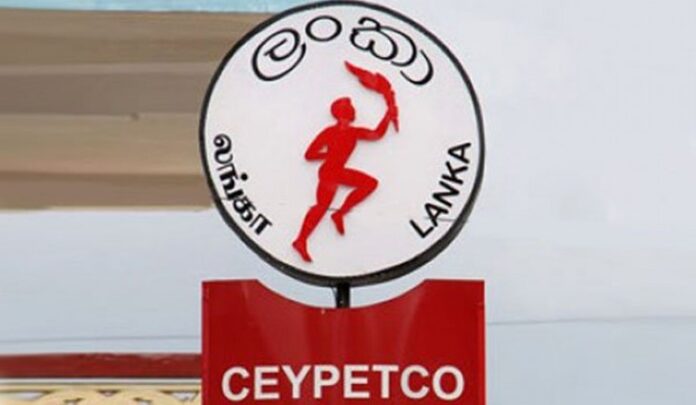Debt-ridden Ceylon Petroleum Corporation (CPC) is to be restructured as the entity is faced with severe cash flow problems with no rupees or dollars to continue its operations, top senior officials disclosed.
Total liability payable to the two state banks as at April 30, 2022 reached Rs. 1,223.63 billion, latest Finance Ministry data shows.
CPC’s accumulated losses and negative net worth amounted to Rs. 1,047.39 billion and Rs. 985.88 billion, respectively as at end April 2022.
A depreciation of the rupee resulted in added foreign exchange losses for the CPC weakening its bottom line.
The exchange rate loss during the first four months of 2022 was Rs. 549.95 billion compared to Rs. 26.74 billion recorded in the same period of 2021, resulting in an overall loss of Rs. 628.38 billion at the end of April 2022.
Under this set up the corporation is unable to pay the excessive loans it borrowed from state banks and no dollars or rupees to import petroleum products at present compelling it to request Rs. 217 billion from the Treasury to buy dollars and open LCs to procure fuel from international suppliers, Central Bank Governor Dr Nandalal Weerasinghe told a media conference on Thursday.
CPC reforms will be implemented under a new plan of divesting a major stake to a foreign company or investor to take up its management in a joint venture or handing over the majority of its fuel filling stations countrywide along with the Ceylon Petroleum Storage Terminals Ltd or the Common User Facility, the storage and distribution arm of the local petroleum industry.
As an initial step of this reform plan the Power and Energy Ministry is to call for Expressions of Interest (EOIs) from prospective foreign firms of oil producing nations to import and sell fuel in the local market, a senior official said.
However, he noted that there was no plan whatsoever to hand over the Sapugaskanda oil refinery to a foreign firm although cabinet approval was given to divest a certain stake of the CPC in the selected international oil firm who will be taking up the importing and retailing fuel in the local market.
The government will pay special attention to state banks sucked dry by loss- making state enterprises. As of March 31, 2021, SriLankan Airlines owed Rs. 1.46 trillion to two state banks, official sources revealed.
In April 2022 , the Sri Lankan Cabinet agreed to amend the Petroleum Products Act making provisions to issue licenses to properly identified parties to import fuel which will end an import monopoly held by the CPC
The Sri Lankan Cabinet recently granted to open fuel imports and retail sales market to companies from oil-exporting nations after the country ran out of fuel
Power and Energy Minister Kanchana Wijesekera said that the companies will be selected upon their ability to import fuel and operate without Forex requirements from the CBSL and banks for the first few months of operations, reported Daily Mirror Online.
He said the Ceylon Petroleum Corporation (CPC/ CEYPETCO) will be the service provider for logistics, stocking and distribution with a service fee levied from those companies.
“Selected outlets of the existing 1,190 CEYPETCO and new outlets will be made available for LIOC and new companies which would be selected. Refinery will remain under CPC’s purview,” said Wijesekera.
